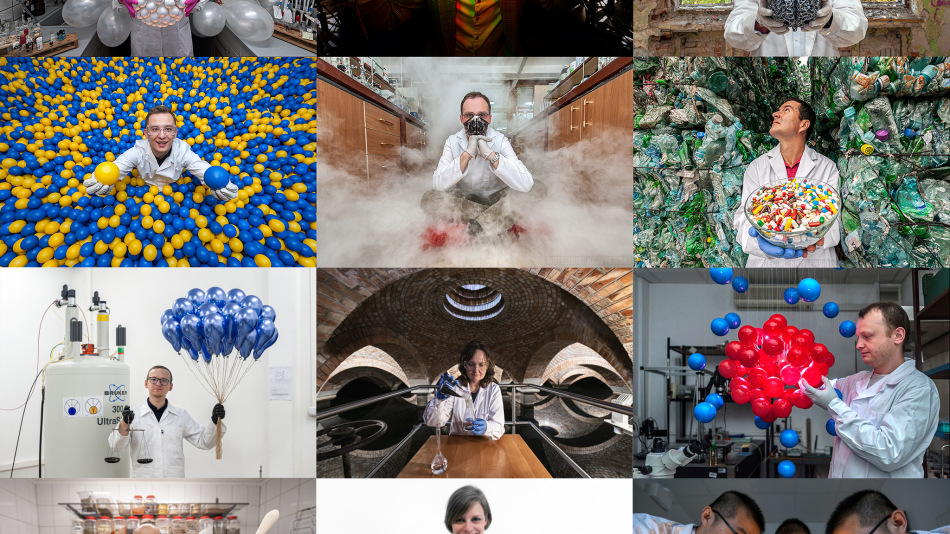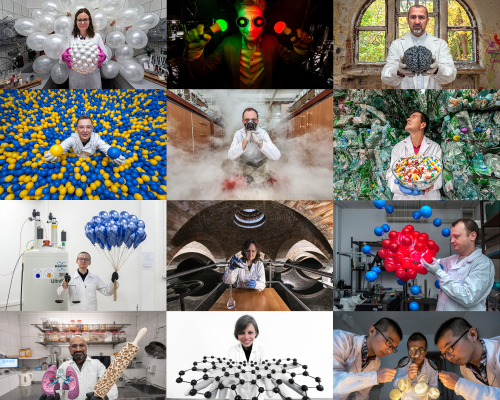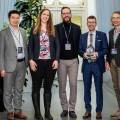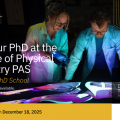A new milestone for the Institute of Physical Chemistry PAS: the launch of Excellence Cluster
Reading time: about 5 minuts

In the structure of the Institute of Physical Chemistry PAS (IPC PAS), there are 32 research teams, 11 laboratories, and the International Centre for Translational Eye Research. Their research topics are quite broad and encompass chemistry, biology, and physics. However, there are three research areas, indicated by the leaders of the teams and laboratories themselves, around which the research efforts of the Institute's employees are particularly focused. These areas have become the basis for the establishment of specific research hubs.
We are pleased to announce that as of February 1, 2024, we have launched the Excellence Clusters, a new formula for collaboration between our specialized teams and laboratories. These research hubs consist of at least 5 research teams or laboratories that undertake topics consistent with one of the key areas of Pillar II of the Horizon Europe Program (the European Union's research funding program for the years 2021-2027).
The Excellence Clusters are a crucial element of the concept of operation of the IPC PAS for the years 2023-2027, as presented by the Institute's director, dr hab. Adam Kubas, during his inaugural address to the Scientific Council of IPC PAS in October 2023. He indicated that the Institute's key mission in fulfilling its statutory tasks is to strive for scientific excellence by:
(1) Promoting the highest quality research, including supporting scientists in addressing ambitious research problems.
(2) Developing laboratory and equipment infrastructure.
(3) Supporting the development of scientific and administrative staff.
(4) Devising solutions to support knowledge transfer to the socio-economic environment.
“Scientific excellence is not achievable without scientific cooperation – first within the unit and then through external collaboration (both nationally and internationally). Excellence Clusters serve as a support platform for teams and laboratories by facilitating the understanding and development of available know-how within the Institute. The topics of the clusters have been identified by the leaders of the units forming each cluster – now, each team can embed its research within the context of a crucial research area identified by European science funding agencies. One of our motivations for establishing the clusters is the goal of increasing the number and competitiveness of grant proposals submitted by researchers at the IPC PAS, with a particular focus on European grants submitted in partnerships. This is important due to insufficient funding for science at the national level. This approach allows for the consolidation of our narrative relevant to grant applications on the one hand, and on the other hand, it naturally (as a bottom-up approach) demonstrates the areas of specialization of the IPC PAS.” – emphasized dr hab. Adam Kubas.
Furthermore, in the Director's opinion, the latter aspect is crucial for preparing the Institute for potential legal changes in the scientific ecosystem in Poland. He sees the Institute's role as a place for conducting scientific research that creates solutions with a real impact on our lives. This is impossible without building a "critical mass" in the selected research areas. The clusters formed indicate these areas for the coming years; however, the structure and operation of the clusters are flexible enough to be easily adapted to the changing socio-economic environment. The long-term goal is to establish IPC PAS within the network of the world's best scientific institutions, allowing the Institute to transform from a local leader in interdisciplinary research at the intersection of chemistry, biology, and physics into a globally recognized scientific institution, creating an ecosystem for interdisciplinary research with the potential to influence the quality of our lives.
We are thrilled to present the three newly formed Excellence Clusters at the Institute:
1. Advanced biomaterials and technologies for health, coordinated by Prof. dr hab. Agnieszka Michota-Kamińska.
This cluster brings together 12 groups and 2 laboratories interested in fundamental research and technology applications in medicine and diagnostics. The groups specialize in diverse yet complementary research fields: sensors arrays for biological samples, surface-enhanced Raman spectroscopy for medical diagnostics, in vivo biomedical imaging, bio-fabrication of tissues and bio-compatible materials, microfluidics and miniaturized tissue models, intracellular dynamics of drug carriers and therapeutics, growth and evolution of pathogenic bacteria, novel anti-microbial and anti-viral agents, and health effects of air pollutants.
2. Photonics and light-driven processes, coordinated by dr Sylwester Gawinkowski.
This cluster brings together 7 research groups and one lab, with the shared goal of understanding the physical principles underlying photonic and photon-induced processes, achieve their precise control, and apply them in ultra-sensitive detection technologies. This includes developing pre-commercial prototypes of novel light sources and highly sensitive detection systems that leverage light-induced processes.
3. Catalysis and materials for sustainable transformations, coordinated by Prof. dr hab. Juan Carlos Colmenares Quintero
The prime focus of this cluster, uniting 11 research groups and 5 laboratories, will be on the innovative preparation, characterization and application of novel materials as well as the development and characterization of catalytic transformations. Particular focus will be on understanding of the reaction mechanisms in catalysis under different activation pathways (e.g. thermo-, photo-, electro, mechano-chemically, and the combination of them) with attention on their energetics, dynamics, surface structure and phase transitions using the complementary combination of various instrumental techniques. The cluster will combine theoretical and experimental efforts to provide a molecular basis for the mechanism of action of all types of catalysts/materials irrespective of the phases involved (homogeneous and heterogeneous).
The main objectives of the IPC PAS Excellence Clusters are:
- Increase the number and competitiveness of grant applications submitted by researchers at the IChF, particularly on European grants and/or those submitted in European partnerships,
- Strengthen the research potential of the IChF in key research areas relevant to the European Research Area (ERA),
- Foster research cooperation between teams, including enhancing internal access to research equipment,
- Adapt the doctoral training program to new strategic research areas at the IChF,
- Consult and propose strategic partnerships and potential accompanying investments.
- Author: Anna Przybyło-Józefowicz, PhD
- Photo source: Grzegorz Krzyżewski
- Date: 12.02.2024






